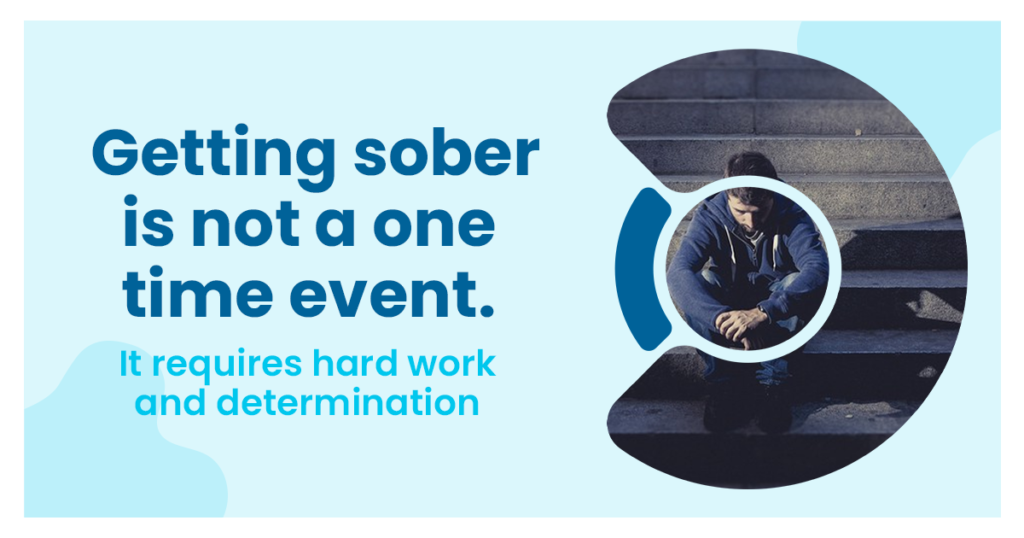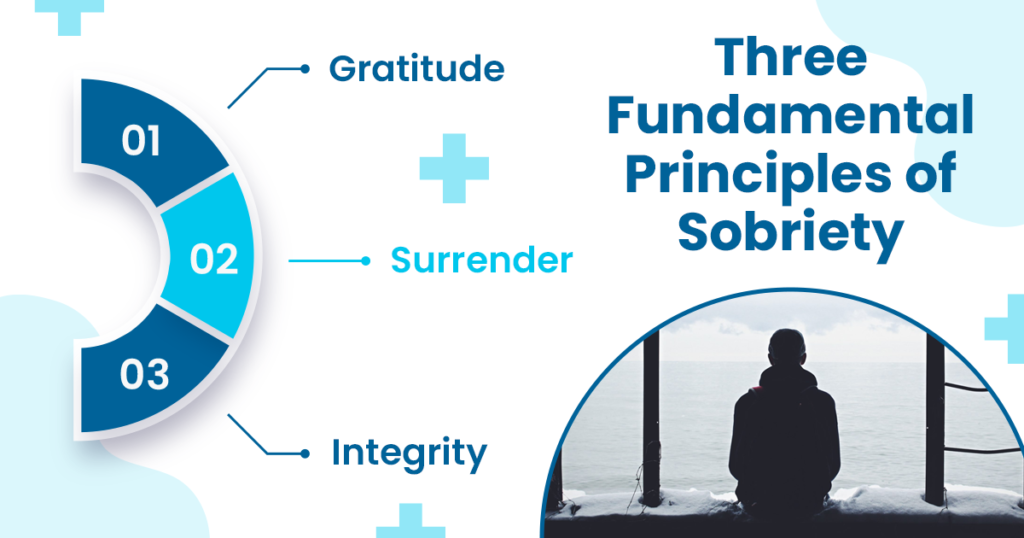
Sobriety and abstinence are different terms for recovering addicts. Abstinence is the process of reducing drinking, and sobriety is the process of complete abstinence from alcohol or drugs. Achieving sobriety is progressive but adequate for a lifetime.
Substance abuse such as alcohol, heroin, cocaine, and opioids leads to severe addiction. It is a condition that affects thousands of people in the United States. Many hospitals, counseling, and rehab centers generally treat patients, but the Haven Detox is one of the best where you achieve sobriety and a life free of addiction.
Sobriety and abstinence are the two main objectives for maintaining recovery. However, the difference between the two is sometimes confusing, leading some individuals to mistake sobriety for abstinence. Read more to clarify the differences between the two terms to help you make the right decision.
What is Abstinence?
Abstinence is a personal choice. It can be for health reasons, religious beliefs, or other reasons. Practicing abstinence can also be a way to focus on a priority, such as education or extracurricular activities. It is the first building block of life towards sobriety.
Using abstinence to control substance abuse is often easier to maintain and is the first step to managing addiction. However, abstinence and sobriety are not mutually exclusive. You should seek professional help if you have an addiction problem. Abstinence-based treatment involves enrolling in a treatment program and acquiring the necessary tools and resources for recovery.
What is Sobriety?
Sobriety is a state of not having any measurable effect on a human being from alcohol or drugs. This state is considered the natural state of human beings at birth. Once sober, they do not display any signs of intoxication. To fight the effects of addiction, people should try to practice sobriety as early as possible.
In the early stages of recovery, sharing the journey with a close group of trusted friends and family is essential. This group can dedicate the time and energy necessary to your sobriety. It is also wise to avoid situations and people that tear you down.
However, once you have reached a certain level, you can begin sharing your sobriety with the rest of the world. If you are a recovering alcoholic or addict, you can share your story with others in recovery and celebrate your progress.
Commitment To Abstinence is Possible
Sobriety is a lifestyle of drugs and alcohol-free, while abstinence is a commitment to remain substance-free. The difference between sobriety and abstinence is not just in terms of length of abstinence. It also involves how an individual chooses to consume substances. Sobriety requires a commitment to abstinence, which means lowering the amount of alcohol and drugs consumed.
Sobriety is a serious commitment to stay physically free of mind-altering substances. While abstinence emphasizes abstinence as a way of life, it also considers other aspects of a person’s life. Sobriety encompasses the underlying mental, emotional, and behavioral changes accompanying a drug-free lifestyle.
For some types of addiction, abstinence isn’t possible. In these cases, the best option is to choose sobriety. While a strict and uncompromising commitment to abstinence is vital for long-term success, it is not appropriate for everyone. Some people need more time to decide and may need to ask for help to reach a decision. In these cases, a balance between sobriety and abstinence can make the difference between success and failure.
When an individual decides to stay sober, they make lifestyle changes that will benefit their life. One of the most drastic changes is abstinence, which stops substance use and changes the way one thinks and regulates emotions. Abstinence allows an individual to gain clarity and perspective while they develop a new life. If a person continues to avoid these substances, they will be more likely to become more frustrated with their situation.
Achieving Sobriety Is Necessary to Get Successful Life
Getting sober is not a one-time event. It requires hard work and determination. There are many factors to consider, and achieving sobriety is not the same for every person. In addition to the addiction, other factors play a significant role.
One of the most important is your attitude. Addiction affects your mood, and this must be addressed if you’re going to have a successful recovery. Thankfully, you don’t have to be a victim of addiction. Haven Detox services can help adolescent addicts achieve sobriety.
Our services capitalize on the need to be accepted by their peers, which is a primary motivator for substance use. These services also promote the theory that recovery is more rewarding than substance use. The psychological tension during a person’s recovery is often due to this ambivalence.
Alcohol recovery is a dynamic process characterized by behavioral, social, and psychological changes in a person’s life. Recovery is not a one-time event that ends in abstinence but a series of steps and milestones that occur over time. People may achieve sobriety at different levels or remain relapsing for years or even decades. Sobriety is a process in which you improve your health and move forward to achieve your life goals.
Fundamental Principles of Sobriety
Sobriety is a lifelong process involving psychological, social, and spiritual freedom from stress. It is essential to address each aspect of the individual, including their cultural background and beliefs, so the recovery process can be effective. Sobriety requires constant review and adjustment. The process must be personal and social, allowing each person to experience success on their terms.
There are some fundamental principles of achieving sobriety in your life. These principles can apply to any aspect of life, from personal relationships to professional life. You can regain sobriety and enhance your personal life by focusing on the given principles to stay sober. Listed below are some of the principles you must apply to achieve sobriety.
Gratitude
If you can recognize your gratitude, then it is likely that you will have the ability to feel grateful for the good things to do in life and to keep your sobriety. Gratitude is one of the fundamental principles of sobriety. By cultivating gratitude, you will be more successful and happier in your lives. By creating more passion in your lives, you will be better equipped to maintain sobriety for life.
Surrender
The ability to surrender opens the door to other possibilities in life. Surrender does not mean letting go. It means moving beyond the ego and the will. This way, you can make better choices and enjoy life to the fullest. The process of recovery is a lifelong endeavor and requires commitment and vigilance.
Integrity
Participants are required to apply integrity in all aspects of their lives. By doing so, they stay sober and become better people. Sober people are also more inclined to practice the steps to maintain recovery. When you live by these principles, you will live a happier and healthier life.

Frequently Asked Questions (FAQ)
Is moderation better than abstinence?
Moderation is valuable and moral. However, it could be risky or impossible to keep depending on your physical, mental, and addiction background. Although abstinence is difficult to maintain, it might be the best choice for you and your loved ones if you have support and coping mechanisms.
Is sobriety the same as abstinence?
Abstinence is defined as physical abstinence from mind-altering substances. Abstinence is not about behavior, emotions, mental health, etc. It simply means that the person is drug or alcohol-free. Sobriety involves abstinence, but it also involves much more than just stopping drinking or using drugs.
What defines sobriety?
Being sober, often known as sobriety, is the absence of intoxication. Sobriety is frequently used in addiction and mental health treatment to describe a person’s decision to abstain from substance use. Often, but not always, a period of problematic use or addiction is followed by sobriety.
Is abstinence the only cure for alcoholism?
Researchers conclude that the available evidence does not support abstinence as the exclusive strategy for treating alcohol use disorders. Where an abstinence-oriented approach is not appropriate, controlled drinking looks to be a viable choice, mainly if supported by specialist psychotherapy.
Find Relapse Prevention and Stay Sober With Haven Detox
During recovery, patients will learn how to avoid situations that trigger their addiction cravings by learning to identify their internal experiences and external cues through behavioral therapy. Our residential treatment can help individuals learn how to cope with situations that trigger a relapse.
Relapse prevention requires continuous monitoring and practice of new skills and approaches. The Haven provides the perfect environment to recover safely with up-to-date technology and various recreational amenities. Living a life free of drugs and alcohol is within reach. Our premium facility can help you reach all of your sobriety goals.
Do not hesitate to contact The Haven if you or a loved one is struggling with an addiction. Get more detailed information about our services by calling (561) 328-8627.






